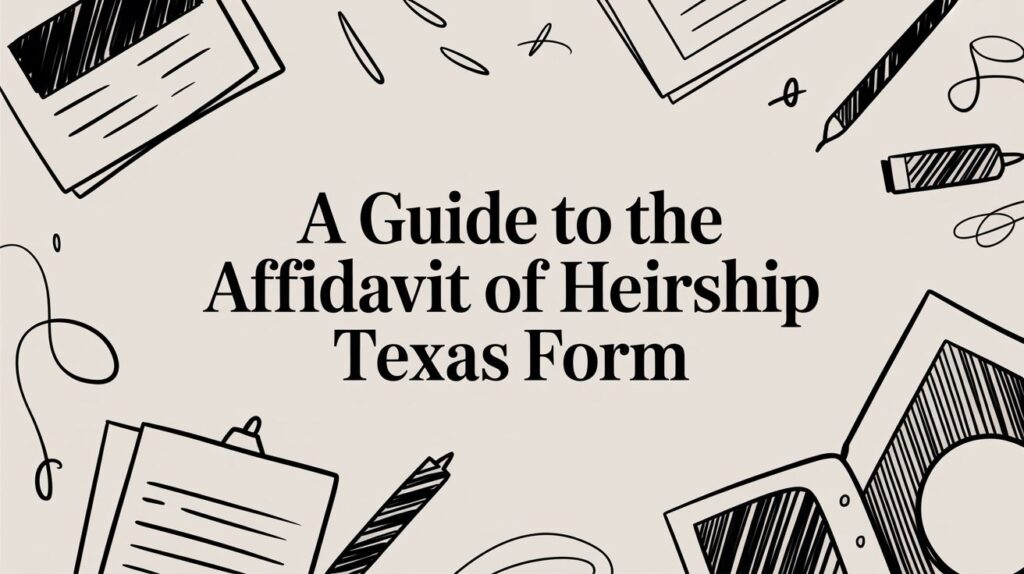As an out-of-state investor, understanding probate in Texas is crucial if you own investment property in the state, as the probate process affects how these assets are transferred or managed after the property owner’s death. Navigating Texas probate laws can seem complex, especially if you’re unfamiliar with local regulations or the processes required to transfer real estate assets. This guide provides comprehensive insight into probate in Texas, particularly as it pertains to investment properties and out-of-state investors.
Understanding Probate in Texas
Probate is the legal process that occurs after someone dies and involves authenticating the deceased person’s will, identifying their assets, appraising the estate, paying debts, and distributing the remaining assets to beneficiaries or heirs. In Texas, probate can be relatively streamlined compared to other states, but it still requires navigating legal steps that can be challenging for out-of-state property owners.
The Texas Probate Process
The Texas probate process involves several key steps:

- Filing the Will: The executor (often appointed by the deceased’s will) files the will in probate court. This must be done within four years of the decedent’s death.
- Validating the Will: The court authenticates the will to ensure it’s valid.
- Inventory of Assets: The executor, with court oversight, gathers and catalogs all assets, including real estate.
- Paying Debts and Taxes: Debts, including mortgages or liens on real estate, must be settled before distributing assets.
- Distribution of Assets: The remaining assets are distributed as outlined in the will, or, if there’s no will, according to Texas intestacy laws.
Types of Probate Proceedings in Texas
In Texas, probate proceedings are designed to offer flexibility based on the complexity of the estate. The type of probate used depends on the estate’s structure, and understanding these types is essential for investors to know how they may impact timelines, fees, and legal requirements.
- Independent Administration: This is the most common probate procedure in Texas and is often favored due to its simplicity. It gives the executor autonomy to handle the estate with minimal court supervision, making it faster and more cost-effective. For investment properties, this can be advantageous as it allows for quicker decisions regarding asset management and sale.
- Dependent Administration: This form of probate involves significant court oversight, requiring the executor to seek approval for nearly every action taken on behalf of the estate. This can lead to increased legal fees and a longer probate process. For out-of-state investors, dependent administration can be cumbersome and may impact rental property management and potential sale timelines.
- Muniment of Title: If there are no unpaid debts aside from real estate liens and a valid will exists, the estate can be probated as a “Muniment of Title,” which serves as a simplified probate process. This can streamline transferring titles for investment properties without full probate administration. However, it’s only applicable if there is no need for extensive estate management.
When Does Probate Apply to Texas Investment Properties?
Not all real estate must go through probate. In some cases, investment properties can bypass probate through strategic planning methods, such as setting up transfer on death deeds, joint ownership, or creating trusts.
Instances When Probate is Required
- Sole Ownership: If the property is solely owned by the deceased without a designated beneficiary, it will typically go through probate.
- No Transfer-on-Death Deed (TODD): Texas allows for TODDs, which enable property owners to designate a beneficiary who inherits the property upon the owner’s death. Without a TODD or joint ownership, the investment property will be subject to probate.
- Trusts and LLCs: Assets held in a trust or LLC may not go through probate if ownership can transfer directly to designated beneficiaries or other members. Proper planning can keep investment properties out of probate and reduce potential delays and costs.
Texas Intestate Succession Laws and How They Affect Investment Properties
When a property owner dies without a will, Texas’s intestate succession laws determine how the estate is distributed. These laws can significantly impact the transfer of investment properties, especially if there are multiple heirs or complex family situations.
In Texas, the order of inheritance follows a specific hierarchy:
- Spouse and Children: A surviving spouse and children are typically the primary beneficiaries. The way property is divided depends on whether it’s community or separate property.
- Extended Family: If there is no spouse or children, property can be distributed to parents, siblings, and other relatives based on Texas’s statutory rules.
Community Property vs. Separate Property
Texas is a community property state, which means that assets acquired during marriage are jointly owned by both spouses. If the deceased owned investment property, whether it is considered community or separate property can influence who inherits it. For example:

- Community Property: Half of the property automatically belongs to the surviving spouse, with the deceased’s half going to children if there is no will.
- Separate Property: Separate property is inherited by children first if there is no will, potentially resulting in multiple heirs having rights to an investment property.
Managing Probate and Property from Out of State
Handling probate from out of state can be challenging, as you may not be present to oversee the process firsthand. Having a Texas-based probate attorney is critical to manage communication with the court, file required paperwork, and address any legal complications.
Key Responsibilities of the Executor or Administrator
The executor or administrator is responsible for managing the property, paying any remaining debts, and distributing assets. For out-of-state investors, key tasks include:
- Appraising and Maintaining Property: Investment properties may need appraisal and regular maintenance during probate. You may consider hiring a Texas-based property management company to handle these tasks.
- Selling the Property: If beneficiaries agree to sell the property, the executor is responsible for listing and negotiating the sale. Keep in mind that properties under dependent administration may require court approval before selling.
- Paying Property Expenses: During probate, property expenses such as taxes, utilities, and maintenance must be covered by the estate or managed by the executor.
Planning Tips to Avoid or Simplify Probate for Investment Properties
Investors can take several steps to reduce probate involvement or avoid it altogether.
Transfer on Death Deed (TODD)
A TODD is one of the most effective tools for Texas real estate investors to bypass probate. It allows property owners to name beneficiaries who will inherit the property upon their death without the need for probate.
Revocable Living Trust

A revocable living trust can own the investment property and, upon the owner’s death, transfer it directly to designated beneficiaries. The trust allows the owner to maintain control over the property during their lifetime, and the asset will not pass through probate. This is beneficial for large portfolios or properties with multiple heirs.
Limited Liability Company (LLC)
Out-of-state investors often find it advantageous to hold Texas real estate in an LLC. An LLC allows the investor to designate ownership shares, which can be transferred upon death without going through probate. Additionally, LLCs offer liability protection, which is beneficial for rental or multi-family properties.
Joint Ownership Arrangements
By establishing joint ownership with rights of survivorship, property passes directly to the surviving co-owner upon death. This option is particularly helpful for spouses or close business partners co-owning investment properties.
Special Considerations for Out-of-State Investors
Out-of-state investors face unique challenges in Texas probate. This can be due to distance, state-specific legal requirements, and the need to coordinate across jurisdictions. Here are some considerations to keep in mind:
- Hiring Local Representation: Having a probate attorney familiar with Texas law is invaluable for navigating the probate court, handling paperwork, and communicating with local authorities.
- Power of Attorney: If you are the designated executor but are unable to be physically present, you might consider granting power of attorney to someone in Texas who can manage property-related matters.
- Texas Probate Timeline: Texas probate typically takes 6 to 9 months. However, dependent administrations or estates with complex property holdings can extend this timeline. Out-of-state investors should plan accordingly, especially if they intend to liquidate or transfer property promptly.
Tax Implications for Investment Properties in Texas Probate

Investment properties in probate are subject to specific tax obligations that can impact both the estate and its beneficiaries. Texas does not have a state estate tax, but federal estate tax may apply if the total estate exceeds the federal exemption threshold.
Capital Gains Tax
If the property is sold during probate, capital gains tax may apply. In probate, the step-up basis rule resets the property’s value to its market value at the time of the owner’s death. This can reduce capital gains taxes for heirs or beneficiaries, especially if the property appreciated significantly.
Property Taxes
During probate, property taxes continue to accrue and must be paid by the estate. Once the property is transferred to beneficiaries, the tax liability shifts to them.
Conclusion
Navigating probate for Texas investment properties as an out-of-state investor can be complicated. However, understanding Texas probate laws and available options can simplify the process. From independent administration and TODDs to joint ownership and trusts, Texas offers multiple pathways to ensure investment properties are managed and transferred according to the owner’s wishes. Proactively planning for probate with the help of an attorney and financial planner can streamline inheritance, minimize tax burdens, and facilitate the transfer of assets with minimal disruption.








